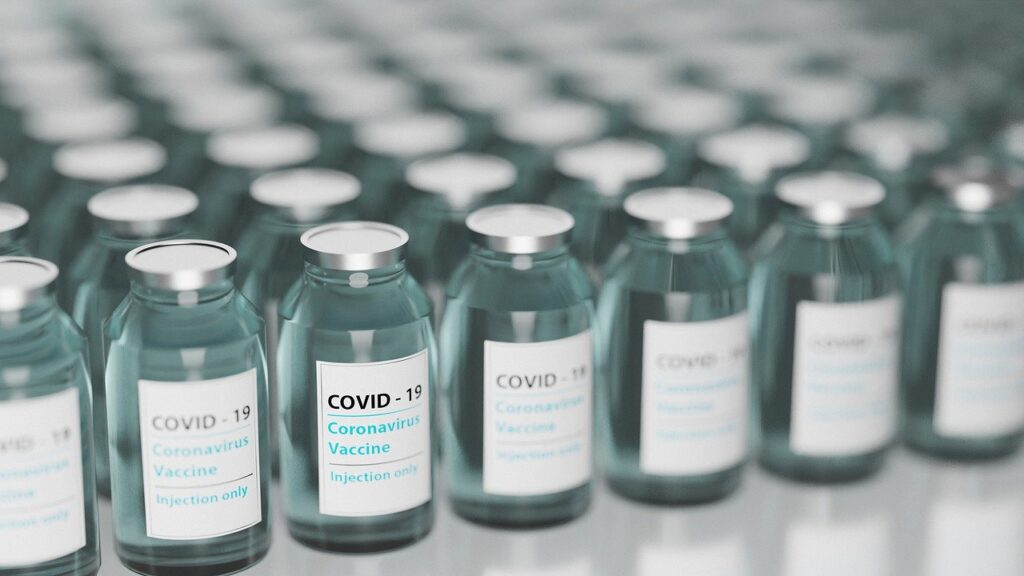Cambridge-based global, science-led biopharmaceutical company AstraZeneca and German manufacturer of viral vaccines and biologics IDT Biologika have signed a Letter of Intent (LOI) to increase Europe’s Covid-19 vaccine manufacturing capability.

The two companies plan on strengthening Europe’s vaccine-making capability. Credit: torstensimon from Pixabay
Subscribe to our email newsletter
Cambridge-based global, science-led biopharmaceutical company AstraZeneca and German manufacturer of viral vaccines and biologics IDT Biologika have signed a Letter of Intent (LOI) to increase Europe’s Covid-19 vaccine manufacturing capability.
Approved by the European Medicines Agency (EMA), shipping of millions of AstraZeneca vaccines has already started on 5 February.
With the initial delivery of vaccines to be shipped amounting to about 17 million doses, the shipping process is expected to carry over to March.
Germany’s IDT Biologika and the UK’s AstraZeneca are exploring various possibilities to expedite the supply of the finished Covid-19 Vaccine AstraZeneca in Q2 2021, which will be a shot in the arm for Europe’s vaccination requirements during this troublesome pandemic.
IDT Biologika CEO Jürgen Betzing stated: “We are proud that AstraZeneca has chosen us as a strategic partner for the manufacturing of their vaccines. The agreement underscores our expertise in the production of demanding vector-based vaccines and our ability to provide a one-stop solution, from creating drug substance, through to “fill and finish” and secondary packaging. I would like to thank the German Ministry of Health for their support in making this cooperation happen, which marks a great day for Germany and Europe.”
With joint effort, the two companies plan on strengthening Europe’s vaccine-making capability for the future by building large, additional drug manufacturing facilities. Details are yet to be finalised.
Their future investments include the capacity expansion up to five 2,000-litre bioreactors at IDT Biologika’s production site in Dessau, Germany, which will have the capacity to manufacture tens of millions of doses of AstraZeneca’s Covid-19 vaccine per month.
The sites are expected to begin operations by 2022 end. Once operational, IDT Biologika will have one of Europe’s largest vaccine manufacturing facilities of its kind, giving it an important role to play in the continent’s future vaccine supply independence.
AstraZeneca CEO Pascal Soriot declared: “This agreement will greatly help Europe build an independent vaccine manufacturing capability that will allow it to meet the challenges of the current pandemic and create strategic supply capacity for the future. We are delighted to be investing with our partner IDT Biologika in the future health, security and wellbeing of millions of citizens across Europe. I would like to thank the German Federal Government and the European Commission for their support in our efforts.”
Covid-19 Vaccine AstraZeneca was awarded a conditional marketing authorisation (CMA) in the European Union (EU) on 29 January, with emergency use approval in over 50 countries and four continents, including India, the UK, the EU, many Latin American countries and Morocco.
COVID-19 Vaccine AstraZeneca, formerly labeled AZD1222, was co-invented by the University of Oxford and its offshoot company Vaccitech.
Apart from the Oxford University-led programme, AstraZeneca is also conducting a large trial in the US and other parts of the world.
In another development, AstraZeneca divested its rights to Crestor (rosuvastatin) and associated medicines in over 30 European countries to Aachen, Germany-based pharma company Grünenthal.
Under the agreement, Grünenthal paid AstraZeneca $320m upfront, with up to $30m more to come in future milestone payments.
Crestor (rosuvastatin) is a lipid-lowering medicine used to prevent cardiovascular events and treat blood lipid disorders.
The agreement did not include AstraZeneca’s rights in Spain and the UK.
 Advertise With UsAdvertise on our extensive network of industry websites and newsletters.
Advertise With UsAdvertise on our extensive network of industry websites and newsletters.
 Get the PBR newsletterSign up to our free email to get all the latest PBR
news.
Get the PBR newsletterSign up to our free email to get all the latest PBR
news.